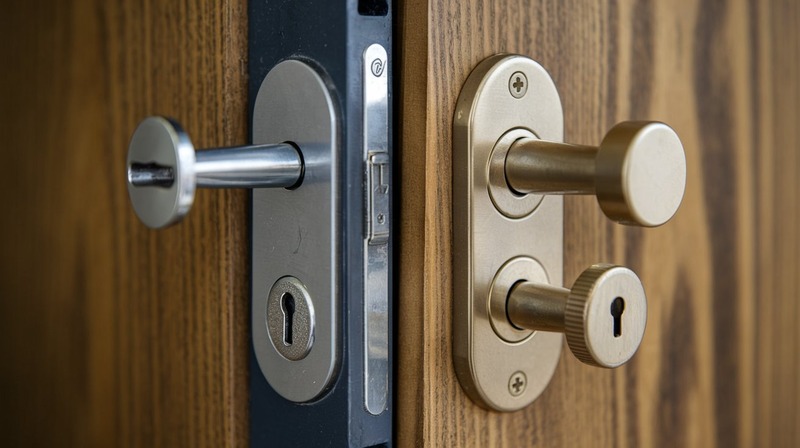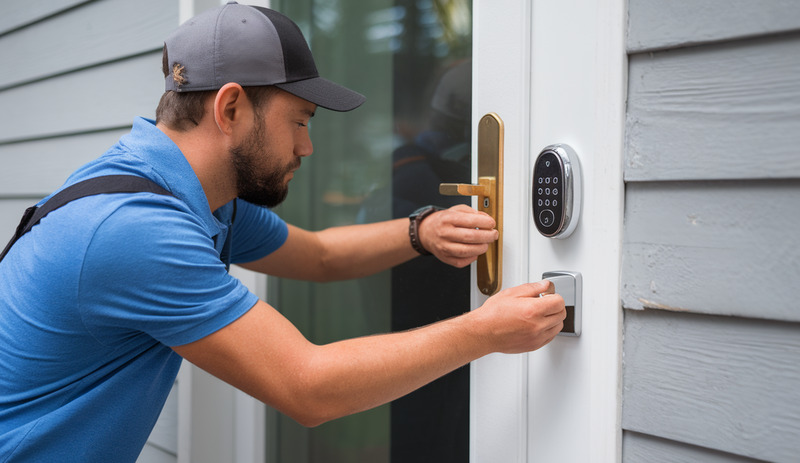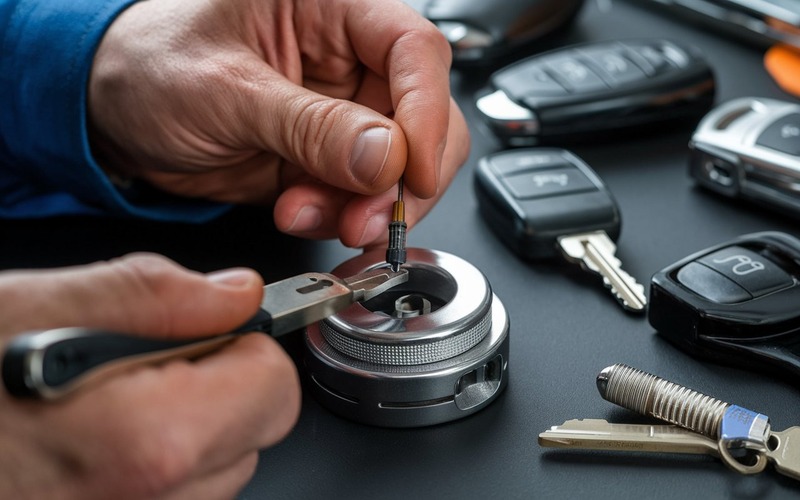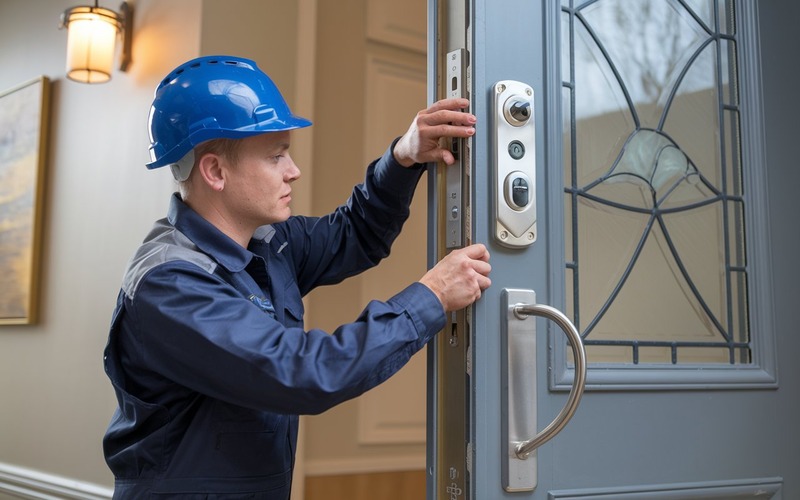
You’ve just moved into a new house, and suddenly you’re bombarded with a million security decisions. Locks seem simple, right? But then you start hearing terms like “single-cylinder” and “double-cylinder,” and everything gets complicated. What’s the real difference, and which one actually keeps your home safer? Most people don’t think twice about their locks until something goes wrong.
But choosing the right lock can mean the difference between feeling secure and leaving yourself vulnerable. In this guide, we’ll break down everything you need to know about single and double-cylinder locks in plain English.
What Exactly is a Single-Cylinder Lock?
The most common type of lock found on residential doors is the single-cylinder lock. These are about as straightforward as locks come and are probably the most familiar to most people. Imagine your typical front door lock-if you can picture that.
From the outside, a key is used to unlock the door. But from the inside, you simply turn the knob. And I know you are probably asking yourself what this type of lock has to do with basic home security. And rightfully so. But listen, and I will tell you what this has to do with anything and why I am even talking about it at all.
For one thing, most homes standardly come with this type of lock. And that’s for good reason. It provides basic security while offering quick and easy access from inside your home. If you’re looking for professional lock installation, we can help you choose the right option.
Double-Cylinder Locks: More Protection or More Hassle?
Things are about to get a bit more complex. A double-cylinder lock requires a key to open the lock from both the inside and outside. “Sounds secure, right?” The mechanism is more complex, with key requirements on both sides (inside and outside of the home) creating an additional layer of security. But complexity often comes with trade-offs. While it might deter some potential intruders, it creates potential challenges for the homeowner.
Safety Pros and Cons: Which Lock Wins?
Most people don’t realize this about lock security. Single-cylinder locks let you get out fast in an emergency. That’s why they’re usually used on exterior doors. But they have a key vulnerability: if there’s a window right next to the door, a burglar can smash it, reach through, and turn the knob to get inside.
Double-cylinder locks eliminate that vulnerability. But they create another set of problems, as you’ll see in a moment.
You May Like To Read: Can Locksmiths Help With Electronic Or Digital Locks?
When Should You Choose Each Type of Lock?
What does this mean for you? Choosing the right lock depends entirely on your particular situation. The design of your home, the nature of your neighborhood, and your individual security requirements all have huge impacts on this choice.
If your home has a lot of nearby windows or is in a high-crime part of town, a double-cylinder deadbolt might make more sense. You can check out our location on Google Maps to see how we serve your local area. On the other hand, if getting out of your house quickly is important to you—or if you have any kind of mobility issue-a single-cylinder deadbolt could be the better choice.
Installation and Cost Considerations
Let’s discuss the practical side of things. When it comes to cost, single-cylinder locks are generally the easiest on the budget, and they are the simplest to install. Most homeowners can do this as a quick, easy DIY project.
Double-cylinder locks, on the other hand, are more expensive to buy and require more careful installation. Install them wrong, and they could present a huge fire hazard! Like cost, expertise in installation is a major issue when deciding between single-cylinder and double-cylinder locks. And again, there’s no straightforward answer.
Are double-cylinder locks legal in all areas, or are there building code restrictions?
Double-cylinder locks are not legal in all jurisdictions due to safety concerns during emergencies. Many local building codes restrict their use, particularly on designated emergency exit doors. These restrictions exist because double-cylinder locks require a key to exit, which could prevent quick evacuation during a fire or other emergency.
Before installing a double-cylinder lock, check with your local building department or fire marshal to understand the specific regulations in your area. In some places, they may be permitted with certain modifications or in specific circumstances, while in others they might be completely prohibited for residential use.
Conclusion
There’s no one-size-fits-all solution when it comes to home security. The right lock depends on your specific home layout, neighborhood, and personal comfort level.
Whether you choose single or double-cylinder, the most important thing is being intentional about your home’s safety. No lock is 100% foolproof. Always combine good locks with other security measures like outdoor lighting, security systems, and knowing your neighbors. Your home is your sanctuary. Take the time to understand your lock options, and you’ll sleep better knowing you’ve made a smart choice.



